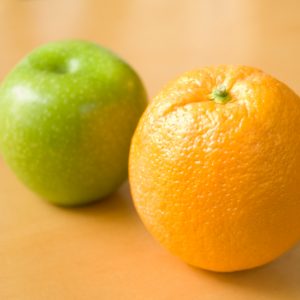DIFFERENCE BETWEEN MANIA AND HYPOMANIA?
MONDAY, AUGUST 30 2010 NATASHA TRACY
One of the main differences between bipolar I and bipolar II is that bipolar II experiences hypomania and not mania. Last week I wrote from the perspective of a hypomanic mind, but what is hypomania really? Is hypomania fun or is it just plain crazy?
MANIA
 In type I bipolar, a defining characteristic is mania. Mania symptoms include:
In type I bipolar, a defining characteristic is mania. Mania symptoms include:- Abnormally and persistently elevated, expansive, or irritable mood
- Inflated self-esteem or grandiosity
- Decreased need for sleep
- More talkative than usual or pressure to keep talking
- Flight of ideas or subjective experience that thoughts are racing
- Distractibility
- Increase in goal-directed activity or psychomotor agitation
- Excessive involvement in pleasurable activities that have a high potential for painful consequence
In order for the mood to be considered manic, these symptoms must cause a “marked impairment in... functioning... or relationships with others, or to necessitate hospitalization to prevent harm to self or others, or there are psychotic features” (official diagnosis criteria).
It’s that last part that’s really key; mania must be severe and result in danger to yourself, others, relationships, employment, etc, typically leading to hospitalization.
HYPOMANIA
For bipolar II we experience hypomania, which I like to call mania-light. All the crazy with half the impairment. It includes symptoms like:
- A distinct period of persistently elevated, expansive, or irritable mood
- Inflated self-esteem or grandiosity
- Decreased need for sleep
- More talkative than usual or pressure to keep talking
- Flight of ideas or subjective experience that thoughts are racing
- Distractibility
- Increase in goal-directed activity or psychomotor agitation
- Excessive involvement in pleasurable activities that have a high potential for painful consequences
The mood must also be unusual for the individual and noticeable by others. And now the important part, “the episode is not severe enough to cause marked impairment in... functioning, or to necessitate hospitalization, and there are no psychotic features." (official diagnosis criteria)
Diagnostically, mania must be at least seven days whereas hypomania has to be at least 4 days.
(Other complexities like mixed-moods and rapid cycling aren’t discussed here.)
MANIA VS. HYPOMANIA
So if you’ve been paying attention, you’ll note that the symptoms of mania and hypomania are virtually identical, the key differentiation is the severity. Mania is very dangerous because people don’t just act abnormally; they typically endanger themselves or vital parts of their lives. Mania often requires hospitalization due to the damage they are doing. Hypomania, on the other hand, may be an unusual mood, and it may cause some harm to the person or their lifestyle, but not to the point where they need to be hospitalized. People in hypomania buy five pairs of shoes, people in a mania buy 50.
IS HYPOMANIA FUN?
So, if hypomania doesn’t get you hospitalized, and doesn’t severely endanger your life, is it fun? Well, it depends who you ask.
Some people say hypomania is enjoyable, happy, fun and the only break they get from their depression. Some people feel they’re more like the person they were before bipolar disorder than at any other time. They’re also fun to be around, creative and are social butterflies at that time. Oh, and the sex tends to be really good too. So, yes, some people really enjoy hypomania and find it fun.
On the other hand, some people get extremely irritable and even angry during hypomanic phases. They become very dissociative and disconnected from the world around them. They feel constantly bombarded by thoughts they can’t control and obsessed with fragments of music or literature that repeats endlessly in their mind. They feel possessed and like they’re being crushed by a very fast, very powerful outside force they can’t control. This is not in the least bit fun.
I PREFER HYPOMANIA
If I got to choose between mania, hypomania and depression, I'd pick hypomania. True, I do feel awfully crazy and disconnected from the world when going through it, and true, the obsessive thoughts are tormenting, but the energy is such a great change of pace from the depression that I’ll take it any day. I’m more creative, can put more energy into achieving goals, and just plain get more done.
But that’s a personal thing. Would anyone care to share their experiences with hypomania?
You can find Natasha Tracy on Facebook or @Natasha_Tracy on Twitter.
No comments:
Post a Comment